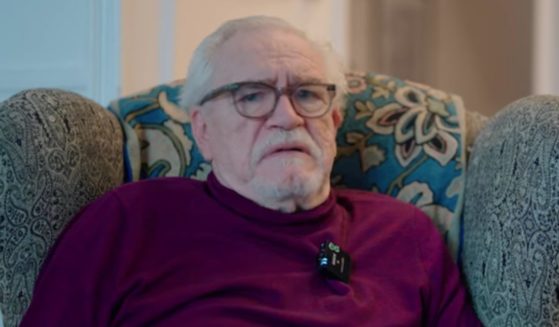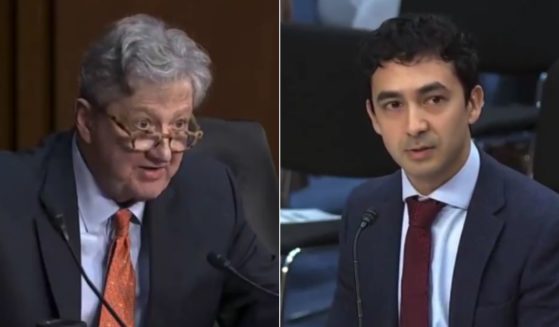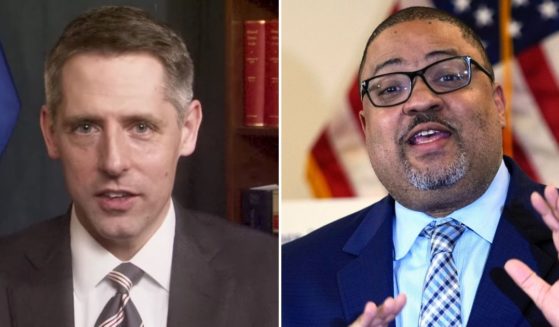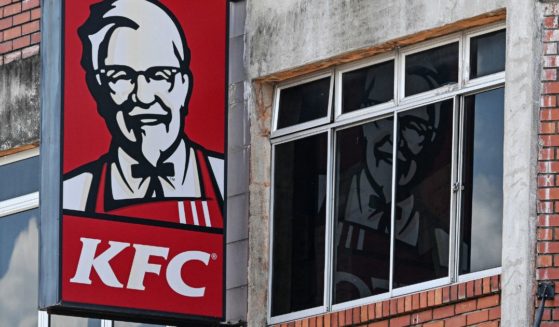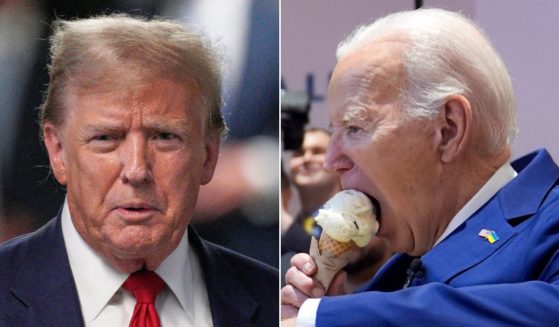Marc Scaringi: Dem PA Governor Violating the Law by Ordering Businesses To Close
In a virtual news conference on Monday, Pennsylvania Gov. Tom Wolf announced that “effective at midnight all nonessential stores are to close in Pennsylvania as well as bars and restaurants, except for takeout.”
He “anticipates” the closure will last for two weeks, but did not give a hard deadline.
Wolf’s statement sent shockwaves across Pennsylvania, causing consternation among business owners and employees alike. Owners are asking if they must close their businesses. Employees want to know if they can stay home. Which businesses are essential; which are nonessential?
Wait. Let’s back up for a minute. What exactly did the governor say and does he even have the authority to say it?
Wolf said “stores are to close.” That inartful choice of words means certain businesses or “stores,” whatever that means, must close. The words – “are to close” – constitute a command, even if couched in passive-aggressive language.
But does Wolf have the authority to order the closure of private businesses, whether essential or nonessential? In short, no. The governor cited as his authority the Emergency Management Services Code, 35 Pa.C.S. 7101.
But that law does not apply to the coronavirus. The Emergency Code pertains to disasters. It defines them as man-made, such as industrial accidents and oil spills; natural, such as hurricanes and tornadoes; or war-caused. Disease appears nowhere in the definition. There is a law on preventing the spread of disease, the Disease Prevention and Control Law 35 P.S. § 521.19, but that law does not authorize the governor to do what he has done.
Further, the Code does not confer power upon the governor to close businesses even if we stretch the definition of “disaster” beyond its breaking point to include disease.
During his news conference, the governor added confusion by declaring that his order is not a “mandate,” and that he will not “enforce” it.
But that’s not what he said the day before or even later that day.
A statement from his office dated from Sunday reads, “using his authority under the state’s COVID-19 disaster declaration order, Governor Tom Wolf today ordered all restaurants and bars to close…in Allegheny, Bucks, Chester, Delaware and Montgomery counties for 14 days. … Businesses that offer carry-out, delivery, and drive-through food and beverage service may continue to do so, but eating and drinking inside restaurants and bars is temporarily prohibited” (emphasis added).
That statement grounds the governor’s authority in his previous “disaster declaration order;” that’s a reference to his Proclamation of Disaster Emergency of March 6, which itself cites the Emergency Code as his authority, bringing us back to square one.
Further, the Sunday statement used the words “ordered” and “prohibited,” which are clearly commands. It included the threat, “Businesses that do not adhere to this order could face enforcement actions.”
Really? What “enforcement” actions? The governor does not explain.
In truth, the governor has no authority to order the closure of all Pennsylvania businesses, whether essential or nonessential. Not only does the Code not apply to disease; the power to close businesses is not even in that law.
And Wolf’s attempt to base his authority in the Code’s empowerment of the governor to control the “ingress and egress” to a disaster area is just silly. Your local restaurant, bar or barber shop are simply not disaster areas.
Later in the day on Monday, in reaction to the mass confusion caused by his two earlier statements, the governor issued an update. He attempted to further define “essential” and “nonessential,” even though there is no such definition in the law. (The governor is simply making it up). Who knew a “pet store” is an essential business?
To add to the confusion, the updated statement indicates he “ordered” restaurants and bars to close and “prohibited” them from operating their dine-in facilities. Elsewhere, however, he refers to this as a “request.” Is that clear?
To top things off, the governor concluded his update with this ominous declaration.
“The Wolf Administration is relying on businesses to act now before the governor or the Secretary of Health finds it necessary to compel closures under the law for the interest of public health, including section 7301 of the Emergency Management Services Code.”
Wow! The governor assumed emergency powers he does not have and then, after walking them back a bit, boldly doubled down and issued a threat to millions of businesses across Pennsylvania – if they don’t close voluntarily he will close them by force.
Pennsylvania’s governor is either ignorant of the law and its limitations on his power or is intentionally disregarding it.
Our governor must be reminded that we Pennsylvanians are governed by law and not men, business owners have the right to make their own decisions about closure in the face of the coronavirus and it’s the governor’s job to protect and not brazenly override that right.
Unauthorized and confused orders and threats to shut down businesses are only adding to the anxiety and fear being experienced by so many Pennsylvanians.
The views expressed in this opinion article are those of their author and are not necessarily either shared or endorsed by the owners of this website. If you are interested in contributing an Op-Ed to The Western Journal, you can learn about our submission guidelines and process here.
Truth and Accuracy
We are committed to truth and accuracy in all of our journalism. Read our editorial standards.



